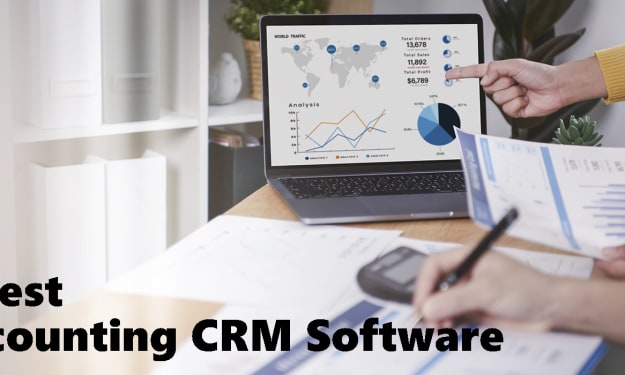7 Tips on How to Reduce Taxable Income for Small Businesses
When it comes to Taxes, Small Businesses are always on the Lookout for ways they can reduce the Tax Deductions.

Every penny matters for a new startup. There’s only so much a small business can handle between the profits and losses. An entrepreneur probably may think “I don’t have time to deal with taxes” or “where are the bills for the merchandise purchased last week?”
It’s better to have an invoice in your hand at the right time instead of asking the latter question. When tax professionals hear your concerns at the eleventh hour, they will help you lower your tax bill.
How? You are soon to find out in the tips mentioned down below that can help you to reduce taxable income.
1. Online Tax Software is your Best Buddy
The new normal in the accounting world is using software to make task completion easier. So let’s say that if you use tax software you have a better chance of handling your tax filings instead of manual tasks.
Tax planning or preparation software is a must these days. Avoid using any obsolete work methodology because that will only slow you down. You can choose from a variety of tax software like My CPA Dashboard or Turbo Tax or something similar that helps you file your taxes online.
After much observation, the IRS concluded that less than 1% of online tax returns are induced with errors. Whereas the number of errors in manual filings is as high as 21%.
Using tax preparation software may sound complex to you, if yes, then hire a professional bookkeeper or CPA. The tax professionals can handle your business expenses and ensure nothing is missed out.
2. Snuff Out the Track Deductions
How good are you at keeping track of your expenses? If you are not, then you better start doing it right away because spending becomes easier when you have the receipts for it.
Tracking your expenses can be a daunting task if not done from the very beginning.
To help reduce the taxable income, you should maintain an online record of your bank transactions. Online banking is easier to track but still, there are several things you may miss out. Traditionally, now accountants and tax professionals are using QuickBooks and other peculiar software that helps them track deductible expenses.
We know it’s not much fun adding up the receipts, but what are the odds that you end up making an error in calculation while tax filing? Talk about stress. So a CPA can definitely help you a lot in this matter.
3. Plan How you want to get Old
Self-employed and small business owners have their retirement plans options in front of them a lot more than others do. So if you happen to be a sole proprietor you have access to the traditional IRA. This means that your retirement plan allows you to contribute at least $55,000 a year!
Earning over 50 means you can contribute a lot more towards your retirement plan. You can also lower the tax bill. For instance, if you are a single filer it can exceed $157,500 and $315,000 for joint filers.
The 401 (K) or SEP IRA will be helpful with your tax deductions. So once contributions are made to the retirement accounts, it will reduce your taxable income.
4. A Home Office is a Cheap Billable
There is no need to be afraid about the home office deduction. Working from home means you are still qualified for tax deductions.
But a home office can help you save taxable income. Some entrepreneurs believe it to be the red flag for an IRS audit. But it’s not always true in every case. The home office does have loads of benefits. A potential reduction in tax deduction is one of them.
Tax law might be complex but there are ways a home office deduction can help you. Whatever the amount is deducted it can be further reduced if you have your family members working as employees too!
You just need a regular space dedicated to your business, operated as a “home office” with a proper setup. Doing so will not bring any audit red flags.
5. Fuel is also Accountable
Many small businesses new to the game may not be aware of it - you can also deduct auto expenses for the business.
Tracking the mileage as a business expense is accountable for a tax deduction as well. You have two ways to calculate the auto deduction. The first is to track the auto expense, deduct the percentage of usage (for business). The second is to track the actual mileage and have tax deducted for the covered miles.
So it’s best to compare the dollar amount if you are planning to use the standard fuel rate deduction. For instance, the mileage deduction for a Range Rover will be a far cry from a Prius. You will be spending more for a Rover as compared to the Prius, so the deducted amount will be different as per mileage consumed.
6. Restructure your Business
Another way to reduce taxable income is to choose a new business structure. An LLC can be elected to be taxed as an S corporation. As a business owner, you can pay yourself a handsome salary which is taxable just like any employee’s salary.
Besides the salary distribution, then there are other business incomes not subject to FICA taxes. That way you get to save loads of taxable income. Also, it helps to avoid self-employment tax which is considerably large.
There are certain limitations with additional complexities to pass-through deduction and it all depends on the type of business you operate.
So when you hire an accountant be sure to talk to them about the tax laws that help you to lower your taxable income.
7. Be Smart about Tax Elections
Now is the time to be strategic about your business expenditures. Let’s say you can deduct the cost for any business equipment, machinery, in full or up front. But for a new startup, such assets are not yet profitable.
A hired accountant can depreciate the assets for you. It may improve your tax situation if the value of the assets is depreciated for future tax years. You avoid a full purchase deduction at once which helps to reduce the taxable income.
The mileage deduction is one primary example. Home office expenses are just another smart strategy for your taxes. You can also claim disaster loss on your previous year’s returns. So do also consider deductions from the business insurance expense.
If your business is registered as single-person LLCs, sole proprietors, or separate entities you should hire a professional accountant to handle your tax deductions in such a case.
Conclusion
When it comes to taxes, companies are always on the lookout for ways they can reduce the tax deductions. To enjoy the proper tax opportunities hiring a tax professional is the key. Small businesses can discover and create business tax strategies that show significant potential for reducing taxable income.
About the Creator
Vasiliki Greece
Remote Business Consultant, Creative Content Writer, Blogger, Vlogger, Traveler, and Philanthropist.






Comments
There are no comments for this story
Be the first to respond and start the conversation.